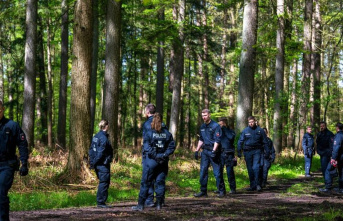It is not just those nostalgic for the lyrical generation, as François Ricard, one of Quebec's most remarkable intellectuals from the Quiet Revolution, so beautifully named it, who are plunged into confusion today.
Current Quebec seems stuck in pitfalls. I noted yesterday in my column this kind of sagging of our collective tone.
Of course, the pandemic is obstructing our vision. Our current heartbreaks and our apparent inability to grasp the magnitude of our collective failures and our wanderings, whether moral, ethical, political or social, destabilize some and discourage others by creating a toxic atmosphere for anyone seeking to move away from the new "great darkness".
The words that cemented the decades during which we dreamed of an open, assertive, tolerant, daring Quebec thanks to the political champions who embodied hope, words like pride, achievement, respect for the builders, admiration for our mentors , have lost their affective connotation.
Resignation
A shift towards resignation can be seen through the evolution of the polls. The undeniable popularity of the CAQ, this political creation led by a sovereignist tries with more or less happiness to forget and make people forget the old historical humiliation of French Canadians before 1960.
Faced with the political collapse of the PQ, François Legault, the embodiment of pragmatism, walks a tightrope preferring to be in power in Quebec than condemned like the PQ to live until its disappearance in the opposition.
The Prime Minister therefore knows the limits that Quebecers have imposed on themselves by voting NO to sovereignty.
The CAQ government then oscillated between powers negotiated à la carte, its eyes fixed on the judgments of the Supreme Court in constitutional matters rather than undergoing scathing and systematic refusals from the centralizing government of Justin Trudeau, the postnational.
A majority of French speakers support the flexibility of François Legault, which others, on the other hand, among the die-hard activists, rather describe as a lack of courage.
Frontier
In Quebec, the clash of generations has never been as violent as it is today. The gap between the oldest who were nourished by patriotism in their childhood, national liberation and sovereignty in their youth and the new generations fed on individualism and harpooned on relativism where everything is equal to everything and paradoxically where the he child is king, these two worlds no longer speak the same language.
The walls have fallen, of course, but a far more fluid border now separates the old from the young. The slowness of the former has become a burden for the impatient extremists that are the latter.
Soon we may even see name changes. The term "French Canadian" will perhaps become fashionable again and the word "Quebecois" will be reserved for a resident of Quebec City.
The French language that we have learned to write, read and speak in euphoria and emotion, this mother tongue in the most carnal sense of the word, is despised by the worshipers of the golden calf of our time.
It is no longer education, knowledge and culture that allow us to know who we are. It's the mirror. The one that sends our image back to us through the networks of all appearances, a troubled, deformed, insignificant image, foreign to ourselves, but sometimes so lucid.
1












